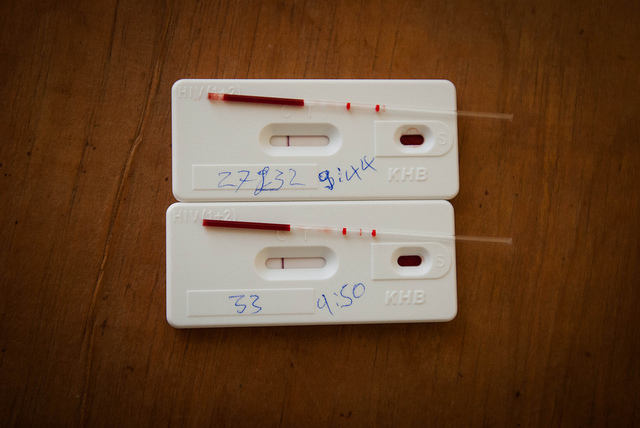"Why so late to take this vital test, Barbados?"
November 28 Testing is an essential step in fighting the HIV health epidemic, writes Lyn-Marie Blackman, 28, a Commonwealth Correspondent from Barbados, but it is a step she says too many in Barbados avoid out of fear or false security.
Testing is an essential step in fighting the HIV health epidemic, writes Lyn-Marie Blackman, 28, a Commonwealth Correspondent from Barbados, but it is a step she says too many in Barbados avoid out of fear or false security.
The HIV epidemic has been with us for the past three decades with still no known cure. HIV prevention and regular testing has always been duly recommended by health professionals, however this advice has not been so readily absorbed by many.
In the month of June, HIV testing was conducted in Barbados as part of an annual regional testing event across the Caribbean. Although this is what many health authorities encourage, many are worried about the myriad cases of late stage HIV/AIDS diagnosis in Barbados. This worry was reflected in the statement of the then-Acting Chief Medical Officer, Dr. Elizabeth Ferdinand when she said, “What is of concern for us is the alarming fact that many persons with HIV are being diagnosed at a late stage of the disease, when they already have developed AIDS.”[1]
The preceding statement from Dr. Ferdinand has not been very comforting at all for me as a Barbadian citizen because the longer a person waits to know their HIV status the more disastrous it can be.
HIV is a very debilitating illness which has the potential to weaken a country’s economy because of the costly HIV drugs that the health care sector has to cover in its budget. As well, the number of people that are occupying hospital beds instead of being in the workforce can cause a regression in a country’s social and economic progress.
Therefore, I hit the streets to find out from the general public what their thoughts were about what the health professional stated. I also wanted to know what may be spurring individuals in Barbados to come forward late for HIV testing. I was sourced with comments like “HIV is not something people want to know that they have” and “the fear of being positive is what will cause that”. Some further went on to state “I trust my partner”, “I do not sleep around” and “I would rather not know.”
So what solution can remedy this problem? The acronym HIV is scary, no one can dispute that. However, no matter how the topic of HIV is presented, testing is and always will be very important to the HIV response. When you get tested you will be properly armed with the course of action that needs to be taken. If one gets a negative result then your aim is to stay negative, and if one gets a positive result then your course is to make sure you receive efficient counselling, enter into a treatment program and adhere to your treatment regimen.
[1] http://www.caribbean360.com/news/barbados_news/late-stage-hivaids-diagnoses-worries-barbados-authorities
photo credit: UNICEF Ethiopia via photopin cc
…………………………………………………………………………………………………………………
About me: I am a conservative and articulate individual with an innate desire to see love, peace and unity triumph. My interests lie in medical research. I enjoy researching medical news from around the world and reporting it in my monthly newsletter entitled L.I.F.E.
I love biomedical science and believe it holds the key to a healthier society. I aspire to become a medical researcher and writer. My focus now is obtaining more exposure for my newsletters: L.I.F.E. and The Believer.
…………………………………………………………………………………………………………………
Opinions expressed in this article are those of the author and do not necessarily represent the views of the Commonwealth Youth Programme. Articles are published in a spirit of dialogue, respect and understanding. If you disagree, why not submit a response?
To learn more about becoming a Commonwealth Correspondent please visit: http://www.yourcommonwealth.org/submit-articles/commonwealthcorrespondents/
…………………………………………………………………………………………………………………




